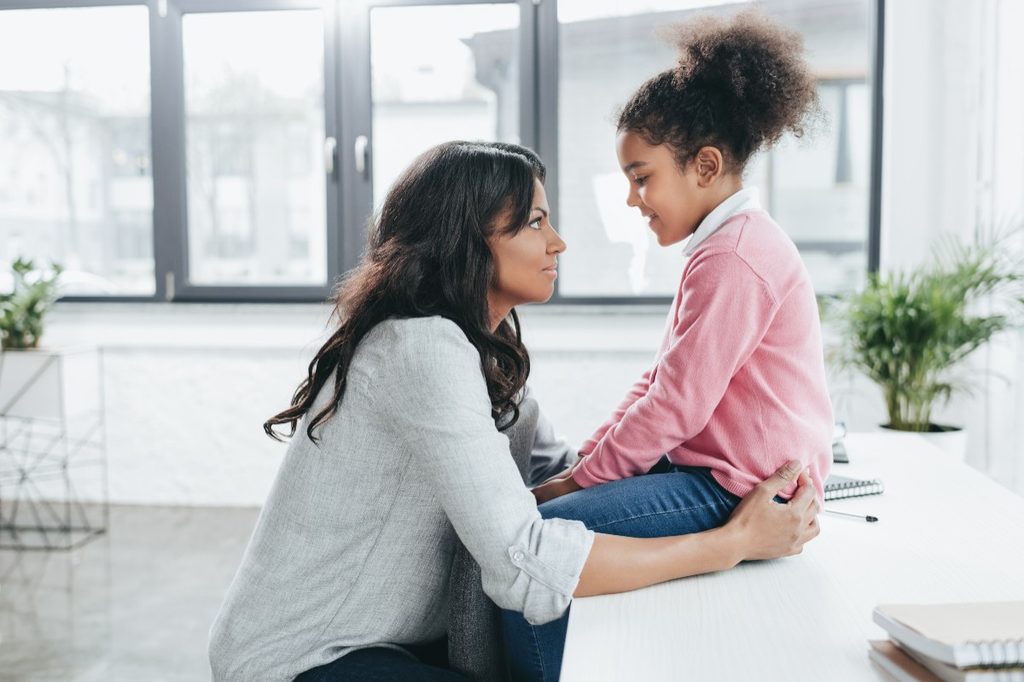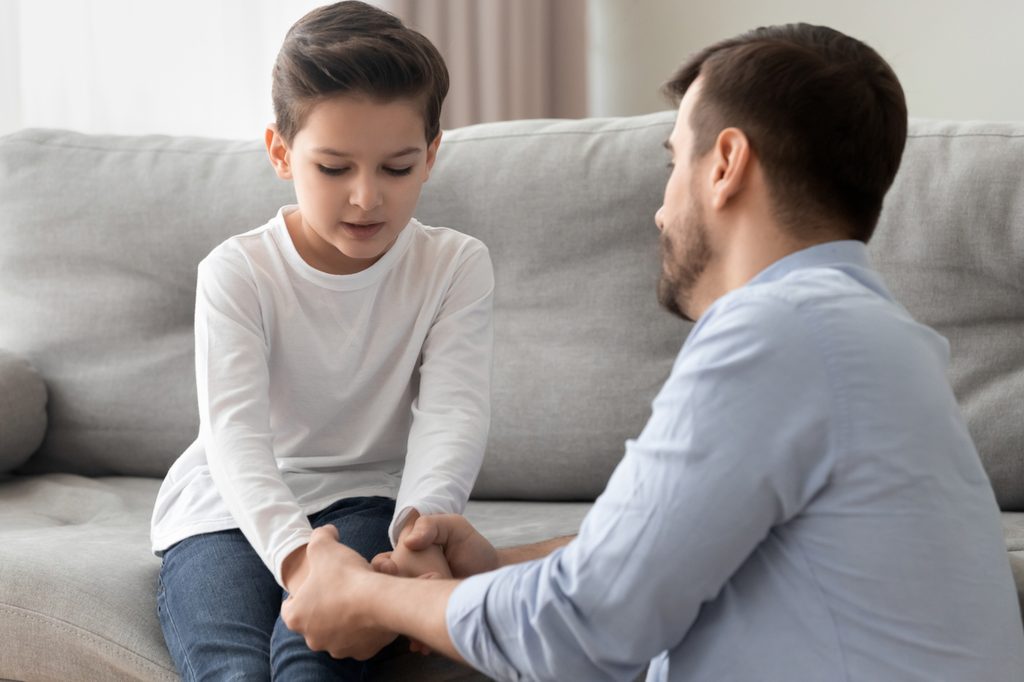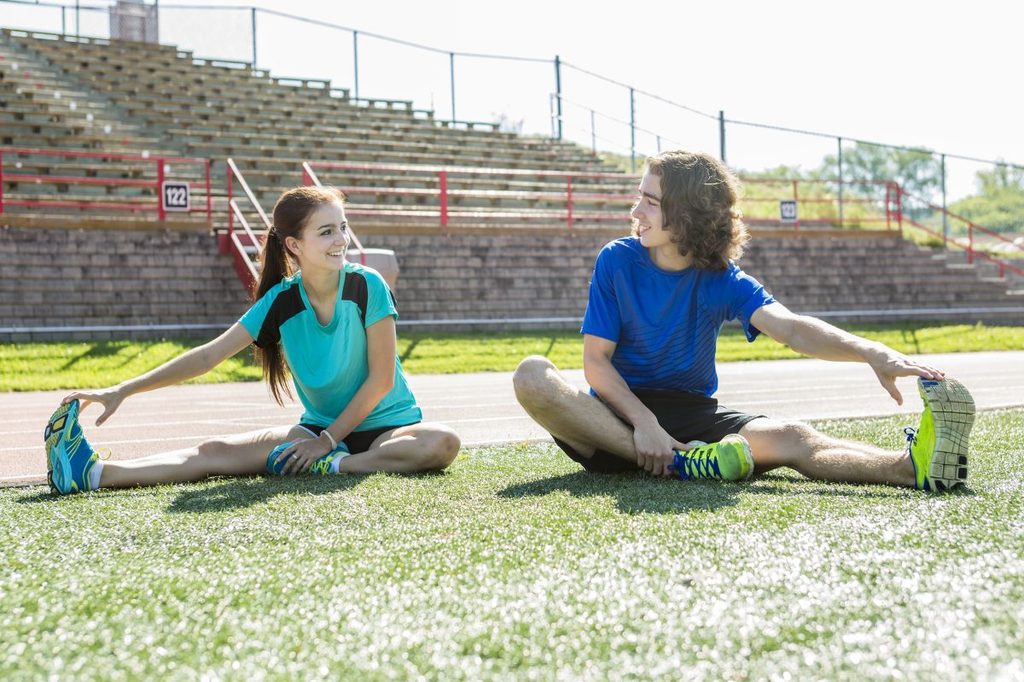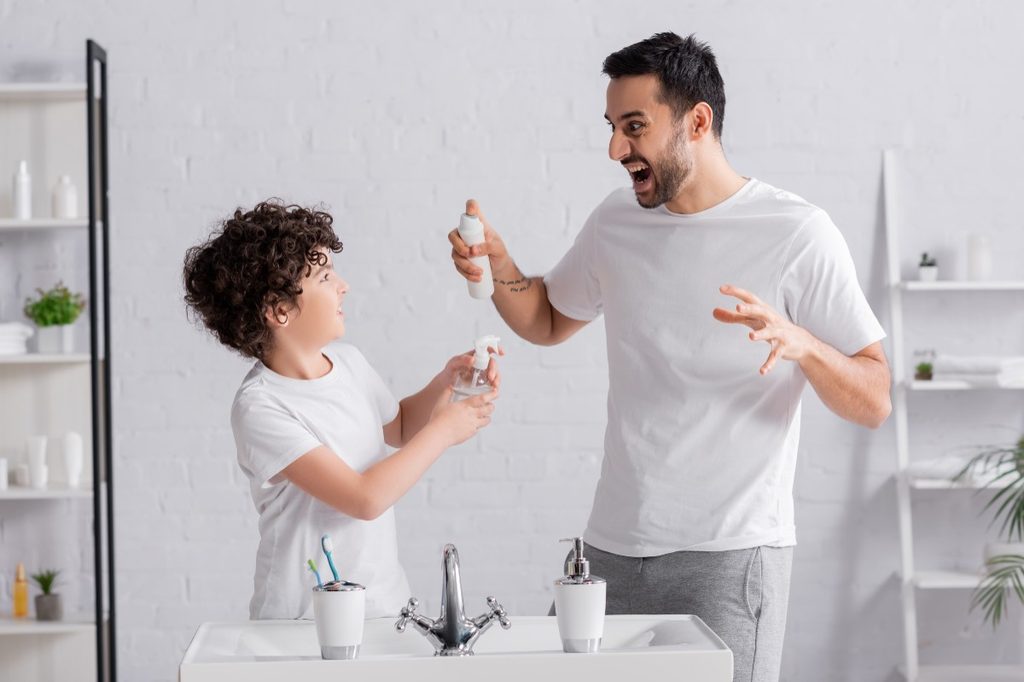
Each stage of parenthood brings something you never thought you would be teaching another human being. You teach your baby how to walk and talk, your toddler how to dress themselves, and your older kids how to read and write. But those older kids become preteens, tweens, and teens, and boy, do things start to change. One thing you’ll notice as a parent is the new look to your child as they become a young adult — and the new smells. If you have an older kid at home, this might be the time you wonder when a child should start wearing deodorant. We’ll help you learn when the right age is, what type of deodorant is best, and how to talk to your child about body odor, in the nicest way possible.

When kids have the personal hygiene talk in school
Around middle school or earlier, girls and boys go through puberty. Preadolescents go through this magical stage of life as early as 8 years old and as late as 14 years old. Along with hormonal changes, new hair growth, and physical body changes, the pubescent body starts using the apocrine gland.
This gland releases a stress-induced substance that can cause body odor. Personal hygiene is part of the reason why schools have a dedicated class to talk about these issues around this age. The exact grade varies from school to school, but the personal hygiene talk happens mostly between sixth grade and eighth grade.
In class, the teacher will go over the body changes each child in the class might be going through. The teacher will often introduce products like deodorants, antiperspirants, menstrual pads, and shaving tools. Along with basic hygiene habits like washing hands after using the bathroom and taking regular showers, this talk at school helps preteens develop a healthy cleaning and grooming routine.

When you should have the personal hygiene talk with your child
Since schools will speak to your child around the time they are 11 years old, you might want to sit them down before that. This is important because some children go through puberty at a much earlier age, and this means they could start developing body odor as early as eight years old.
As early as possible, teach them simple habits like wiping down their crevices between their toes, under the arms, and under their neck as needed throughout the day. Baby wipes are never just for babies. They are a life hack for every stage of parenting, and an easy way for your child to freshen up as needed.
As your child gets older, in addition to going over proper showering and bathing processes, explain what deodorants and antiperspirants are, so these aren’t completely foreign when it’s time for your child to use them. Let them know what type of products are available and gently offer them their options. Help your child find one they like that is organic and natural, with as few chemicals as possible. If you want to create your own deodorant at home from naturally derived ingredients, make different recipes from common household items, and use it as a bonding experience between you.

When your child should start wearing deodorant
Frankly, there is no exact date for when your child should start wearing deodorant. They won’t start smelling on the day of their eleventh birthday. The most you can do is keep an eye out for signs of puberty, and always communicate with them about personal hygiene.
Other factors could come into play, such as whether or not they sweat because of sports, if you live in a warm climate, if they eat lots of odor-inducing foods like peppers and garlic, or if they have good overall hygiene. In some rare cases, strong body odor is caused by excessive sweating for no apparent reason. If this sounds like your child, it’s best to contact a professional to find out what the root of the odor is.
For all other circumstances, avoiding spicy foods and garlic, showering regularly, wearing breathable fabrics, drinking water, and washing clothes regularly all help reduce body odor. Think of the things you do to keep the stink away and teach your child the same steps.

How to let your child know it’s time to use deodorant
All parents of a tween or preteen will start to notice that smell. And, you know what, your child might not even notice it. Their friends might, classmates could notice, or siblings could catch a whiff, but that doesn’t mean your kid will. They might be nose blind or they might not care, but either way, you have to bring it up.
Your child will feel more comfortable if you let them know about stinks and odor before a mean kid in their class makes fun of them. Once your child is aware of body odor, they will also be more equipped to handle anyone that throws a mean comment their way if they are working on getting it under control.
There are plenty of body books out there that go over puberty and body changes that cover body odor and hygiene. You could read the book with your kid or let them read it at their own pace and ask you questions after. But at the first nose twinge you need to have the conversation with your child about body odor and possibly using deodorant.
If your child says they know, they have noticed they smell, but they don’t want to use deodorant, then plan to do as much washing as possible to keep their clothing, bedding, sports gear, and other items as clean and odor-free.

Types of deodorant that are safest for kids
Go over every kind with your child
- Aerosol
- Roll-on
- Solid in a jar
- Powder
- Gel/cream
- Natural salts/crystals
- Wipes
- Packed solid roll-on
There are tons of various deodorant applicators available in stores these days. If you are worried about aluminum in the deodorant, especially if your child has any kidney issues, look for alternatives like organic and scent-free options that are safest for kids. If this is their first time using personal care products, their sensitive skin will do best with gentle formulas without heavy chemicals. It will help to try to choose deodorants that last all day. They will likely leave the product at home until they feel a need to bring it to school.

Are there other, natural alternatives to deodorant?
There are natural alternatives to store-bought deodorants you can make at home, and you might even have most of the ingredients already in your cabinets.
What to look for
- Baking soda or cornstarch
- Essential oils like lavender or tea tree
- Lemon juice
- Witch hazel
Baking soda and cornstarch neutralize odors and absorb sweat. These are less powerful than antiperspirants and may be best for sensitive skin. Essential oils offer antibacterial and antifungal properties to prevent bacteria from thriving in your underarms. Lemon juice and witch hazel are acidic liquids that eliminate odor-causing bacteria.
You can store these do-it-yourself deodorants in a tincture or spray bottle if your child wants to bring them to school. There are also natural deodorants you can purchase from the store that come with small spatulas to scoop them onto your fingers and rub onto your underarm skin.
Once your child is knowledgeable about deodorants, they’re ready to start trying different ones. If they’re reluctant to try it for the first time at school, have them test-drive it at home. This way, they can wear it all day and discover if it’s a good fit. Whether your child is a preteen or slightly younger, they could practice good hygiene with their first deodorant as soon as possible.
The simple truth is we all stink. It’s not the sweat itself that makes up body odor, but the bacteria that eats the sweat. Unless you don’t sweat at all, you will have some type of body odor at least at one point during the day, which is perhaps the most important message to convey to your child. Let your child know body odor isn’t embarrassing, but we should do what we can to either minimize it or prevent it to show love for their own body while showing respect for others when they are out in public — and that deodorant is a part of the solution.


